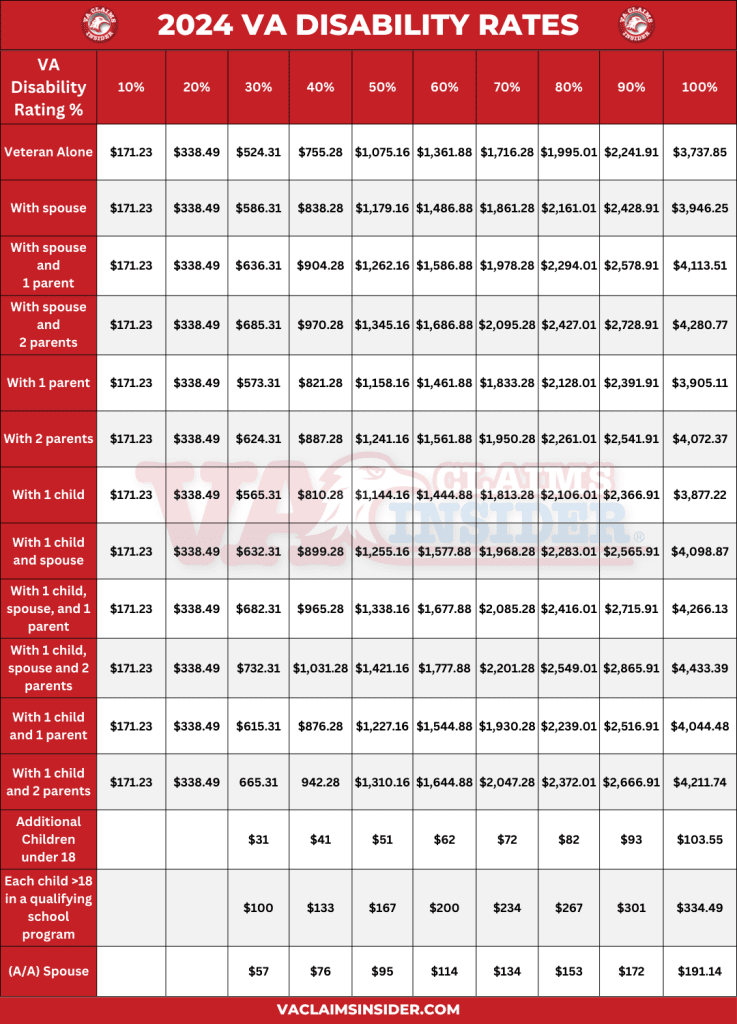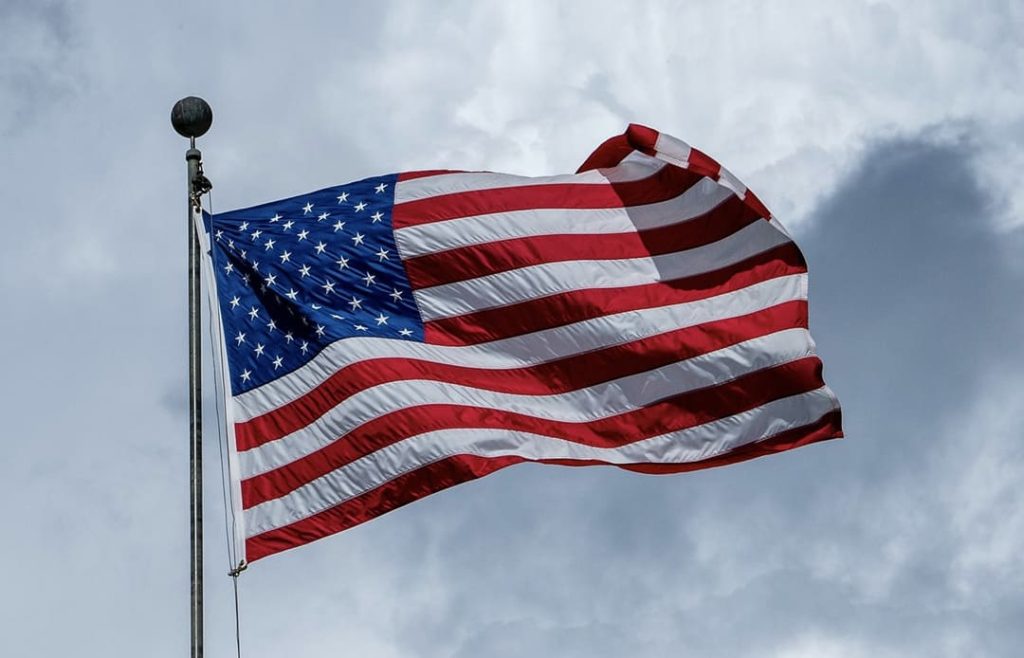Looking for Expert-Level VA Claim Answers?📱Call Us Now! 737-295-2226
If you’re suffering from anxiety that’s related to your military service, you may be eligible for VA disability compensation for an anxiety VA rating increase of up to 100%.
Despite how common anxiety is amongst veterans, many veterans suffering from mental health issues never seek support and benefits.
In this guide, we break down how to INCREASE your VA disability rating for anxiety—so you can get the compensation and benefits you deserve.
Table of Contents
You DESERVE a HIGHER VA rating.
Take advantage of a VA Claim Discovery Call with an experienced Team Member. Learn what you’ve been missing so you can FINALLY get the disability rating and compensation you’ve earned for your service.
Summary of Key Points
- To qualify for an anxiety VA rating, you need a current diagnosis, persistent and recurring anxiety symptoms, and you need to prove it’s service connected.
- Your best bet for service connecting anxiety is through direct or secondary connection.
- The VA rates five different anxiety disorders.
- VA disability ratings for anxiety disorder are 0%, 10%, 30%, 50%, 70%, or 100%.
- Your exact VA rating will depend on your level of occupational and social impairment and your other mental health symptoms.
- The VA could ask you to attend a C&P Exam during the claims process. This is a very important exam that you DON’T want to miss, and you DO want to be prepared for.
- The most common mental condition VA rating is 70%.

How Anxiety Impacts Veterans
Nearly 8% of the veteran population suffer from generalized anxiety disorder.
How many are getting the VA benefits they’ve earned for their service?
If you served our country and suffer from an anxiety disorder, then this complete guide can help you get the VA disability benefits YOU DESERVE.
Don’t leave money on the table! And DON’T buy into the myths and stigmas that surround mental health conditions. There is no shame in taking advantage of the benefits your service has put at your disposal.
Keep reading for everything you need to know about getting an anxiety VA rating👇
How to Get an Anxiety VA Rating: Basic Eligibility Criteria
To win your anxiety VA claim and be eligible for an anxiety VA rating, you must meet three criteria by law:
- You have a current medical diagnosis of an anxiety disorder in a medical record (Service Treatment Records, VA medical records, or private medical records). The VA has a “duty to assist,” which means they’ll help you find the records you need to support your claim.
- Your Anxiety was caused or made worse by your military service. This is known as service connection (I will explain more in the next section).
- You have persistent and recurring symptoms of an anxiety disorder. Even if you have an anxiety diagnosis, if your symptoms go away, you aren’t eligible for a VA rating.
If you think you have a mental health condition such as an anxiety disorder, but don’t have a medical diagnosis, pick-up the phone and call the VA mental health facility nearest you to make an appointment right away!
How to Service Connect Anxiety Disorders for VA Disability Benefits
Proving that your military service caused your anxiety or made it worse is crucial for winning your anxiety VA claim. This is known as “service connection.”
There are four types of service connection:
- Direct Service Connection occurs when something that happened during and because of your military service causes your disability or makes it worse.
- Presumed Service Connection refers to conditions the VA automatically assumes were caused by your service. For example, if you served in the Vietnam War, you were likely impacted by Agent Orange. So, if the specific condition you develop is linked to Agent Orange and you meet the minimum service requirements, the VA will assume your disability is service connected.
- Secondary Service Connection occurs when a disability that’s already rated by the VA causes or aggravates another disability.
- VA Medical Malpractice. Any condition or injury worsened or caused by the malpractice or negligence of the VA which is called a TORT claim/ connection.
Pro Tip: Unless you’re a former Prisoner of War, the best strategy for service connecting your anxiety is likely through direct or secondary service connection.
Proving Direct Service Connection
Assuming you already have an official and current medical diagnosis of anxiety, proof of direct service connection requires two things:
- Evidence of an in-service event, injury, or illness. You need to have evidence that something happened during and because of your service that caused your anxiety or made it worse. This evidence can come from medical records, personal statements, statements from witnesses, or other military records that document the incident and verify the incident occurred.
- A medical link (“Nexus”) between #1 and #2. Does the medical evidence suggest that your in-service event, injury, or illness is at least as likely the cause of your anxiety? If you get a Nexus Letter, the link will be expressed as one of these statements of probability:
- “Is due to” = 100% certain
- “More likely than not” = greater than 50% certain
- “At least as likely as not” = equal to 50% certain
- “was less likely” = less than 50% certain
- “Is not due to” = 0% chance
- “Which clearly and unmistakably existed prior to service, was aggravated beyond its natural progression” = Request for medical opinion for aggravation beyond its natural progression
- “Which clearly and unmistakably existed prior to service, was clearly and unmistakably not aggravated beyond its natural progression” = No Service Connection of a condition that existed prior to service
- “Cannot determine a medical opinion regarding the Etiology” = No Service Connection
There are many things from your time in the military that could directly cause anxiety and serve as your in-service event, injury, or illness. Think about your time in the military:
- Did you ever experience a traumatic event such as an IED blast, gun fire, indirect fire, or sexual assault?
- Did you ever live in a stressful environment for a long period of time, such as an austere out-post?
- Were you ever unusually stressed because of an injury, such as a camel spider bite?
These and other similar, military-related incidents can cause anxiety.
Proving Secondary Service Connection
If you already have an official and current medical diagnosis of anxiety, proof of secondary service connection requires two things:
- A primary service-connected disability. If you already have a VA rating, you’re good to go with this requirement.
- Indication that the condition may be associated with the primary disability. Does current medical research suggest that your claimed secondary condition can be caused and/or aggravated by your primary disability? Or is it the opinion of a qualified medical professional that your primary disability is responsible for your claimed secondary condition?
Anxiety can be secondary to ratable conditions such as, tinnitus, depression, and PTSD. Many veterans suffer from various mental health issues, to include Generalized Anxiety Disorder (GAD).
In addition, Anxiety and Depression are common secondary VA disability claims, especially Anxiety and Depression secondary to service-connected physical ailments, such as neck pain, back pain, and knee pain.
If you’re suffering from service-connected physical disabilities, you may qualify for a high-value secondary mental health claim know as Chronic Pain Syndrome with Anxiety and Depression, also known as Somatic Symptom Disorder.
A veteran’s final VA rating for anxiety depends upon the frequency and severity of their symptoms, meaning, the more severe your symptoms, the higher your anxiety VA rating.
How the VA Rates Anxiety
Currently, the VA could give you an anxiety VA rating of 0%, 10%, 30%, 50%, 70%, or 100%, depending on the severity of your symptoms. The average mental health VA disability rating (including anxiety) is 70%.
VA Diagnostic Codes for Anxiety Disorders
VA Diagnostic Codes are unique 4-digit codes used to identify specific conditions that can be rated for VA disability benefits.
Below are the different types of anxiety disorders the VA rates along with their respective diagnostic code:
- Code 9400: Generalized anxiety disorder is severe, uncontrollable worry about day-to-day things. This worry is often irrational.
- Code 9403: All phobias, including social anxiety disorder (or social phobia), are rated under this code. Phobias are irrational, severe fears that are tied to specific things. Phobias can range from fear of things like spiders, strangers, blood, etc., to fear of situations like big crowds, flying, leaving the house without your pants on, etc. Phobias are more than basic fear or dislike. They are often so severe that they lead to extreme behaviors like violence or panic attacks. A specific phobia must be diagnosed in order to be rated under this code.
- Code 9410: All other specific anxiety disorders that are not noted elsewhere are rated under this code.
- Code 9412: Panic disorder and/or agoraphobia are rated under this code. Panic disorder is a condition where severe panic attacks occur in stressful or fearful situations. Panic attacks are episodes of severe fear that cause the inability to act rationally. With panic disorder, panic attacks can occur at any time and can last for a few minutes to many months. Agoraphobia is not the same as panic disorder, but often exists along with panic disorder. It is the fear of public places that can also cause panic attacks.
- Code 9413: All other unspecified anxiety disorders are rated under this code. Basically, any anxiety disorder that doesn’t have a particular name is rated here.
VA Rating Scale for Anxiety
The VA rates the anxiety disorders listed above using the General Rating Formula for Mental Disorders.
The formula considers two main circumstances:
- Occupational impairment. Does your anxiety affect your work performance or keep you from maintaining a job?
- Social impairment. Does your anxiety make it so you have a hard time in social situations and with maintaining healthy relationships?
The VA rates these symptoms at either 0%, 10%, 30%, 50%, 70%, or 100%:
Anxiety VA Rating Chart
Below is the 38 CFR VA Rating Scale for Anxiety and Depression.
| VA Rating for Anxiety 38 CFR Criteria | VA Rating Percentage |
|---|---|
| Total occupational and social impairment, due to such symptoms as: gross impairment in thought processes or communication; persistent delusions or hallucinations; grossly inappropriate behavior; persistent danger of hurting self or others; intermittent inability to perform activities of daily living (including maintenance of minimal personal hygiene); disorientation to time or place; memory loss for names of close relatives, own occupation, or own name. | 100% |
| Occupational and social impairment, with deficiencies in most areas, such as work, school, family relations, judgment, thinking, or mood, due to such symptoms as: suicidal ideation; obsessional rituals which interfere with routine activities; speech intermittently illogical, obscure, or irrelevant; near-continuous panic or depression affecting the ability to function independently, appropriately and effectively; impaired impulse control (such as unprovoked irritability with periods of violence); spatial disorientation; neglect of personal appearance and hygiene; difficulty in adapting to stressful circumstances (including work or a worklike setting); inability to establish and maintain effective relationships. | 70% |
| Occupational and social impairment with reduced reliability and productivity due to such symptoms as: flattened affect; circumstantial, circumlocutory, or stereotyped speech; panic attacks more than once a week; difficulty in understanding complex commands; impairment of short- and long-term memory (e.g., retention of only highly learned material, forgetting to complete tasks); impaired judgment; impaired abstract thinking; disturbances of motivation and mood; difficulty in establishing and maintaining effective work and social relationships. | 50% |
| Occupational and social impairment with occasional decrease in work efficiency and intermittent periods of inability to perform occupational tasks (although generally functioning satisfactorily, with routine behavior, self-care, and conversation normal), due to such symptoms as: depressed mood, anxiety, suspiciousness, panic attacks (weekly or less often), chronic sleep impairment, mild memory loss (such as forgetting names, directions, recent events). | 30% |
| Occupational and social impairment due to mild or transient symptoms which decrease work efficiency and ability to perform occupational tasks only during periods of significant stress, or symptoms controlled by continuous medication. | 10% |
| A mental condition has been formally diagnosed, but symptoms are not severe enough either to interfere with occupational and social functioning or to require continuous medication. | 0% |
VA Rating Scale for Anxiety Explained
0 Percent
A mental condition has been formally diagnosed, but symptoms are not severe enough either to interfere with occupational and social functioning or to require continuous medication.
This means you have a medical diagnosis for an anxiety disorder, but no subjective symptoms.
You have no occupational and social impairment at the 0% VA rating for anxiety.
10 Percent
Occupational and social impairment due to mild or transient symptoms which decrease work efficiency and ability to perform occupational tasks only during periods of significant stress, or symptoms controlled by continuous medication.
Translation of 10% anxiety VA rating: You have very mild symptoms of anxiety.
Maybe you take antidepressants, but these medications keep your symptoms in check most of the time.
30 Percent
Occupational and social impairment with occasional decrease in work efficiency and intermittent periods of inability to perform occupational tasks (although generally functioning satisfactorily, with routine behavior, self-care, and conversation normal), due to such symptoms as: depressed mood, anxiety, suspiciousness, panic attacks (weekly or less often), chronic sleep impairment, mild memory loss (such as forgetting names, directions, recent events).
The 30% VA rating for anxiety accounts for fairly mild symptoms.
You have some depression, anxiety, memory loss, and panic attacks, but not very often.
You might be having some trouble sleeping along with mild memory loss.
Typically, you’re having panic attacks LESS than once per week.
Note that a panic attack and anxiety are NOT the same thing.
Panic attacks come on suddenly and involve intense and often overwhelming fear that usually lasts 10 minutes or less.
They’re often accompanied by frightening physical symptoms, such as a racing heartbeat, shortness of breath, dry mouth, and nausea.
50 Percent
Occupational and social impairment with reduced reliability and productivity due to such symptoms as: flattened affect; circumstantial, circumlocutory, or stereotyped speech; panic attacks more than once a week; difficulty in understanding complex commands; impairment of short- and long-term memory (e.g., retention of only highly learned material, forgetting to complete tasks); impaired judgment; impaired abstract thinking; disturbances of motivation and mood; difficulty in establishing and maintaining effective work and social relationships.
The 50% VA rating for anxiety has moderately severe symptoms.
The biggest difference between the 30% and 50% anxiety VA rating is that at this level, you’re having a lot of trouble in your relationships.
Perhaps you don’t have any friends or just want to be alone.
Maybe you’re divorced or can’t get along with your spouse anymore.
The other difference is you’re now having panic attacks MORE than once per week.
70 Percent
Occupational and social impairment, with deficiencies in most areas, such as work, school, family relations, judgment, thinking, or mood, due to such symptoms as: suicidal ideation; obsessional rituals which interfere with routine activities; speech intermittently illogical, obscure, or irrelevant; near-continuous panic or depression affecting the ability to function independently, appropriately and effectively; impaired impulse control (such as unprovoked irritability with periods of violence); spatial disorientation; neglect of personal appearance and hygiene; difficulty in adapting to stressful circumstances (including work or a work like setting); inability to establish and maintain effective relationships.
The 70% anxiety VA rating has very severe symptoms and is a big jump from the 50% level.
Notice the keyword change to “Deficiencies in Most Areas.”
Maybe you constantly check windows and doors in your home or have other obsessive rituals as you go about your day, such as a video camera monitoring system around your property.
Your panic attacks, depression, and anxiety are now happening constantly.
You think about suicide often, meaning you’re having thoughts or even making plans.
You are unable to establish and maintain effective relationships at work and socially.
100 Percent
Total occupational and social impairment, due to such symptoms as: gross impairment in thought processes or communication; persistent delusions or hallucinations; grossly inappropriate behavior; persistent danger of hurting self or others; intermittent inability to perform activities of daily living (including maintenance of minimal personal hygiene); disorientation to time or place; memory loss for names of close relatives, own occupation, or own name.
Notice the change to “Total Occupational and Social Impairment.”
This means you’re having major issues at work and at home.
Perhaps you can’t work because your anxiety is so severe.
A 100% anxiety VA rating is the first time we see delusional thoughts, hallucinations, and grossly inappropriate behavior.
Severe memory loss and occasional inability to care for oneself are now present at the 100% level.
How Much is an Anxiety VA Rating Worth?
If you win your anxiety VA disability claim, how much you’ll receive in monthly compensation depends on your VA rating percentage and your family factors. See below👇

Wondering How to Increase Your Anxiety VA Rating?
Join VA Claims Insider Elite, get instant access to the Elite Experience Portal Plus (EEP+) and $13,119 worth of proprietary VA claim resources and start FREE today:
You DESERVE a HIGHER VA rating. We CAN HELP.
Take advantage of a VA Claim Discovery Call with an experienced Team Member. Learn what you’ve been missing so you can FINALLY get the disability rating and compensation you’ve earned for your service.

How to Ace Your Anxiety C&P Exam
Featured post: How to Ace Your C&P Exam for Anxiety and Depression
The VA could require you to attend a Compensation and Pension Exam (C&P Exam) during the claims process. This is usually a virtual exam but could an in-person exam conducted by a VA physician or a VA-contracted physician.
This is a very important exam.
The VA will place emphasis on the exam results and the examiner’s notes. You don’t want to miss your C&P Exam appointment, and you don’t want to show up unprepared. A lot of claims are won or lost based on the C&P Exam.
During your C&P Exam, avoid trivializing or exaggerating your symptoms. Remain straightforward, factual, and be sure to tell the truth.
Avoid simple yes or no answers if possible. Explain your answers with in-depth descriptions of your symptoms. Remember, no one knows your social and work deficiencies better than you do.
To prepare for this you may want to take notes of your daily issues for as long as possible before your exam. While your medical records should contain some details, only you know what it’s like to live with your illness day in and day out. Be sure to track your symptoms.
Ideally, the more information you can provide, the better.
Preparing a statement beforehand can be helpful with this. Specifically write down the details of your daily life living with anxiety. Include statements that explain your limitations. Be sure to include the frequency of your most severe symptoms. This gives the examiner more to add to your report.
Another helpful bit of evidence can be including performance evaluations from before your anxiety became an issue. This will provide a level of “before and after” comparison which is helpful for the VA’s discretionary decisions.
And finally, be sure to include statements from those relationships closest to you. The witness of friends and family to your illness and the impact they see it having on your life can be extremely helpful to understand your need for more assistance.

DBQ for Mental Health Conditions
If the VA requires you to attend a C&P Exam, the examiner will use a Disability Benefits Questionnaire (DBQ) to guide the examination.
DBQs can be VA forms (a contractor could use an equivalent form). They help the VA collect the information they need to make a rating decision.
Anxiety and several other mental health conditions use the same DBQ form. This form has two critical sections:
In Section 1, 3A of the Public Facing DBQs, a private provider or the C&P examiner will check one of 7 boxes based upon their subjective assessment of your overall level of occupational and social impairment.

You’ll notice the keywords for each block mirror the PTSD Rating Scale verbatim.
Regardless of whether you have PTSD, Major Depressive Disorder, Chronic Adjustment Disorder, or any other Generalized Anxiety Disorder, all mental health conditions are rated under the same scale.
This is the MOST IMPORTANT section on your DBQ.
Section 3 of the public facing DBQ is the second most important part of the DBQ.
The reason is because your current symptoms of anxiety and depression serve as a signal to the VA Rater on the severity of your mental health condition, which ultimately affects your final rating.
The more severe your anxiety disorder symptoms are, the higher the anxiety VA rating you’ll receive.


(FAQs) Frequently Asked Questions
Is generalized anxiety disorder a VA disability?
Yes, generalized anxiety disorder (GAD) is a VA-recognized disability that may entitle you to VA disability compensation. However, the VA classifies anxiety disorders into six different types. The VA uses different diagnostic codes to better understand and treat the condition of veterans.
Can I get VA disability compensation for anxiety?
Yes, the Department of Veterans Affairs (VA) will pay veterans with service-connected anxiety tax-free compensation each month. The amount of VA compensation depends upon your anxiety VA rating.
What’s needed to win an anxiety VA claim?
You need to meet four criteria to win your VA claim for anxiety:
- A medical diagnosis of anxiety
- Evidence of an in-service event, in-service event, injury, disease, or aggravation
- A link or medical nexus that your anxiety was caused or made worse by your military service (service connection)
- Current and ongoing symptoms of anxiety
What are the VA disability ratings for anxiety?
If you are considered service-connected for anxiety, you will receive one of six (6) possible anxiety VA disability ratings for your mental health condition, broken out as follows: 0%, 10%, 30%, 50%, 70%, or 100%.
Your anxiety VA rating is based upon the severity of your anxiety disorder symptoms, specifically related to your level of occupational and social impairment.
Can I receive Special Monthly Compensation for anxiety?
Yes! VA Special Monthly Compensation under Category S is given if the veteran has at least one condition rated 100% AND one or both of the following:
- You are completely and permanently housebound because of his service-connected conditions, meaning that the veteran cannot leave his area of abode (this can include his own home, a hospital ward, or a care facility) at all, and this is expected to be the case for the rest of his life OR
- You have another condition rated 60% or a group of conditions together rated 60% that are unrelated to the 100% condition. For example, you have GERD rated at 60% and Generalized Anxiety Disorder rated at 100%.
Veterans can get an extra compensation each month, tax-free, if you meet the anxiety disorder housebound criteria known as SMC-S.
Can anxiety VA disability be Permanent and Total (P&T)?
Some veterans may receive a permanent and total rating (also known as 100% P&T) for service-connected anxiety. If you are overall rated at 100% and all your service-connected disabilities are reasonably certain to continue throughout your lifetime, you will obtain the status of permanent and total disability.
Can the VA reduce my VA disability rating for Anxiety?
It’s possible. Unfortunately, sometimes the VA will lower a veteran’s VA rating for anxiety. If that happens to you, obtain new and relevant medical evidence for your anxiety condition, and challenge the VA’s decision to lower your anxiety VA rating.
How do I get a 100% VA disability for anxiety?
Your symptoms must be severe enough to warrant a 100% anxiety VA rating. Many veterans do obtain a 100% rating for anxiety disorders using VA Claims Insider’s proven proprietary education-based Coaching and Consulting process, including credible Medical Nexus Letters for Mental Health.
Can I work with a 100% anxiety VA Rating?
Yes, you can! It’s a myth that having a mental health condition somehow means you can’t work. In fact, you can work with any anxiety VA rating. Even with a 100% anxiety VA rating, there is no requirement or mandate that affects your work unless you have a 100% rating due to TDIU (total disability due to Individual Unemployability.
Will mental health conditions affect my security clearance?
It is a MYTH that having PTSD or any other mental health condition such as anxiety and depression will affect your security clearance.
Of course, you’ll need to report it to your security manager and update your SF 86. However, it has no impact on your security clearance (in our experience serving 25,000+ veterans with a mental health condition since 2016).
How do you describe anxiety to the VA?
According to the American Psychological Association, anxiety is a future-oriented, long-acting response broadly focused on a diffuse threat. In other words, anxiety is a persistent feeling that something bad (you might not know what) is going to happen in the future.
Everyone’s anxiety manifests differently. You could have physical symptoms, such as increased blood pressure, trembling hands, or faster breathing. Or it could manifest as depression or trouble focusing.
Be sure to share your specific symptoms with the VA as well as what stressors in your life you feel could be the cause. For example, are you behind on house payments? A looming foreclosure on your home could certainly cause anxiety.
How do I prove anxiety for VA disability benefits?
The VA only needs to see an official and current medical diagnosis from a qualified medical professional to accept that you have anxiety. To win an anxiety VA rating you need to prove is that your military service caused your anxiety or made it worse (aka, service connection).
What is the average anxiety VA rating?
The VA has awarded 2,564,653 disability ratings for mental disorders, and the most common rating of this category is 70%.
Conclusion
As a veteran, you may have experienced anxiety during and after your service. Anxiety is a common mental health condition that affects many veterans, and it can have a significant impact on your daily life.
Anxiety can manifest in various ways, such as constantly feeling on edge, having panic attacks, experiencing social anxiety, or having difficulty sleeping. These symptoms can interfere with your ability to work, socialize, and carry out everyday tasks. They can also lead to other issues, such as depression, substance abuse, and suicide.
If you’re experiencing anxiety, it’s essential to seek help. The VA offers various mental health services to veterans, including therapy and medication. These services can help you manage your anxiety and improve your overall well-being. Additionally, an anxiety VA rating can help provide you with additional compensation and benefits to improve your quality of life.

NEED MORE ASSISTANCE?
Most veterans are underrated for their disabilities and, therefore, not getting their due compensation.
At VA Claims Insider, we help you understand and take control of the claims process so you can get the rating and compensation you’re owed by law.
Our process takes the guesswork out of filing a VA disability claim and supports you every step of the way in building a fully-developed claim (FDC)—so you can increase your rating FAST!
If you’ve filed your VA disability claim and have been denied or have received a low rating—or you’re unsure how to get started—reach out to us! Take advantage of a FREE VA Claim Discovery Call.
Learn what you’ve been missing—so you can FINALLY get the disability rating and compensation YOU DESERVE!

Trisha Penrod
Trisha Penrod is a former active-duty Air Force officer. As an Intelligence Officer, she led teams of analysts to apply advanced analytic skills to identify, assess, and report potential threats to U.S. forces.
Trisha attended the U.S. Air Force Academy and holds an MBA from Webster University. After receiving an honorable discharge in 2018, Trisha worked as a growth marketer and utilizes her analytic skills to help others accomplish their business goals.




